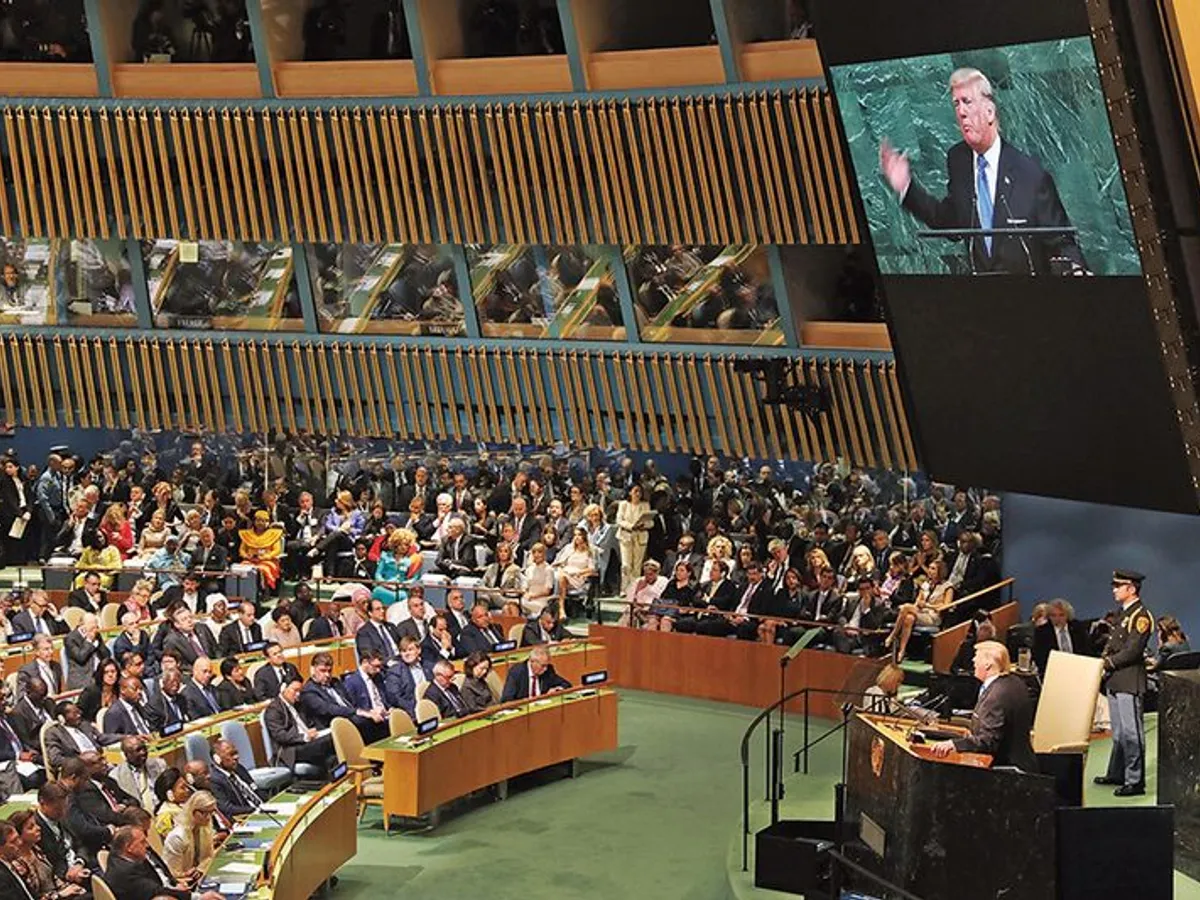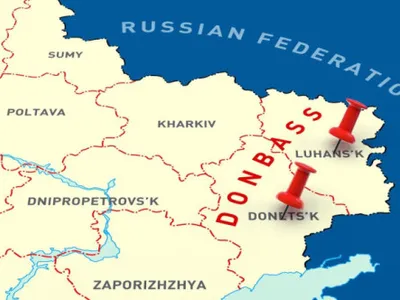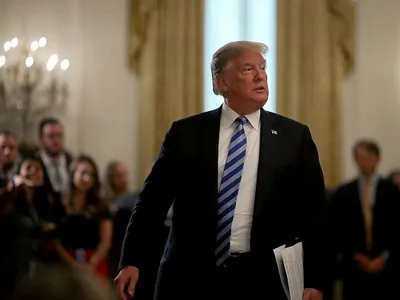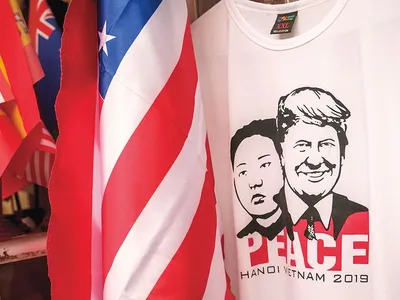Newsweek's Washington correspondent: Trump's war on Iran

President Trump’s foreign policy strategy over the last three years has been as chaotic and unpredictable as his supporters craved and his opponents had feared, and nothing encapsulates this more than the current situation with Iran.
The president campaigned on a non-hawkish foreign policy, in contrast to many of his opponents at the time and to many successful Republican presidents who made their names on war, particularly in the Middle East and Afghanistan. From 2012 to 2013, Trump even criticized President Obama on his favorite social media platform, Twitter, for what he believed to be Obama creating tension and then a theoretical war, in a bid for re-election.
“Don't let Obama play the Iran card in order to start a war in order to get elected--be careful Republicans!” Trump tweeted in October of 2012, when Obama was facing off against Republican candidate, Mitt Romney.
Trump tweeted about Obama escalating conflicts with Iran multiple times during those two years. Just over a year from the last election in 2013 he tweeted, “Remember that I predicted a long time ago that President Obama will attack Iran because of his inability to negotiate properly-not skilled!”
This is some remarkable foreshadowing from Trump, there are jokes among his critics on Twitter that for almost every Trump policy or political stance today, there is an old tweet directly contradicting it. Now, seven years later, Trump is the president facing re-election and the decision whether or not to start a war with Iran. Are Trump’s reasons for this what he accused Obama of doing?
So far, there appears to be no reason, beyond re-election speculation like Trump himself accused Obama of, to believe that Trump himself wants to start a war. But Trump’s cabinet officials wanting to invade Iran? That appears to be the reality here.
It has been widely reported for weeks now that the masterminds of this bellicose line are National Security Advisor, John Bolton, a notorious hawk who has had decades of experience sanctioning, invading and meddling in countries facing political upheaval, as well as Secretary of State, Mike Pompeo, who appears to agree with the Bolton line of foreign policy. It was reported that the two men were considering proposing sending 120,000 troops into Iran, shadowing the invasion of Iraq in 2003, a war Bolton’s fingerprints are all over.
Since that report in mid-May, it appears Bolton has been publicly trying to gauge whether Trump supporters, and the president himself, can be convinced that this is a war they should support. Republicans, and even many Democrats, were not a fan of the Iran nuclear deal negotiated by Obama’s Secretary of State, John Kerry. Trump has since withdrawn from that deal a year ago now which he referred to as “one-sided.”
While the plan to send over 100,000 troops into Iran has not materialized yet, the Pentagon did recently propose sending 10,000 troops into the region, which could be some sort of a compromise between the hawks and Trump. As is similar to the case in Venezuela, while there is no nuclear threat like in Iran, Trump campaigned on a non-interventionist foreign policy strategy and he appears to be trying to stick to it even as he has hired advisors whose records appear to be directly in opposition to him.
It is worth remembering also that Trump infamously said on the campaign trail in 2016 that the U.S. should have “taken the oil” from Iraq during the war, a disturbing sentiment for a myriad of reasons, both ethically and logically.
Two of the largest recent Trump foreign policy conflicts have revolved around both Venezuela and Iran, the first and third-largest oil reserves on the planet. Thus, there are plenty of motives for Trump to start a war with Iran, as he publicly explained over the last few years. Now, he actually has the presidential powers to do so.
___________________
Adam Tismăneanu is a journalist based in Washington, D.C. with a bachelors degree in journalism and media studies from Northeastern University in Boston.
___________________
___________________

















